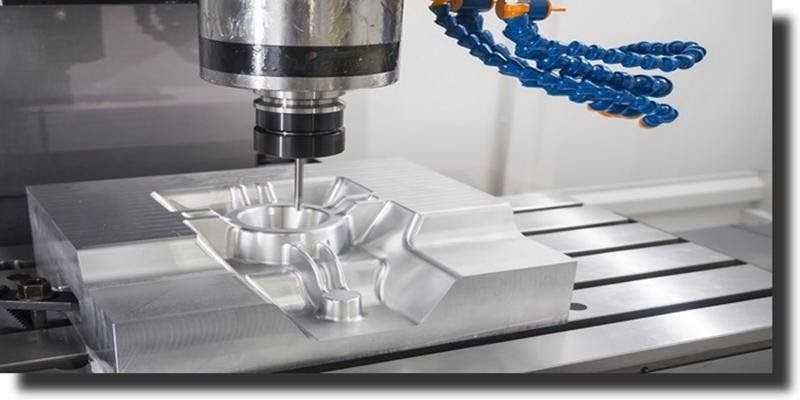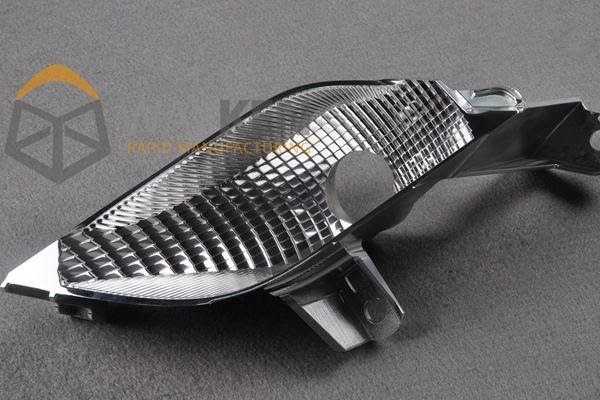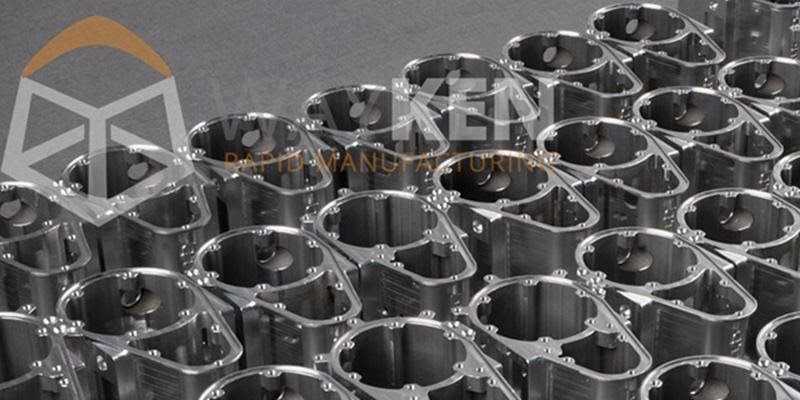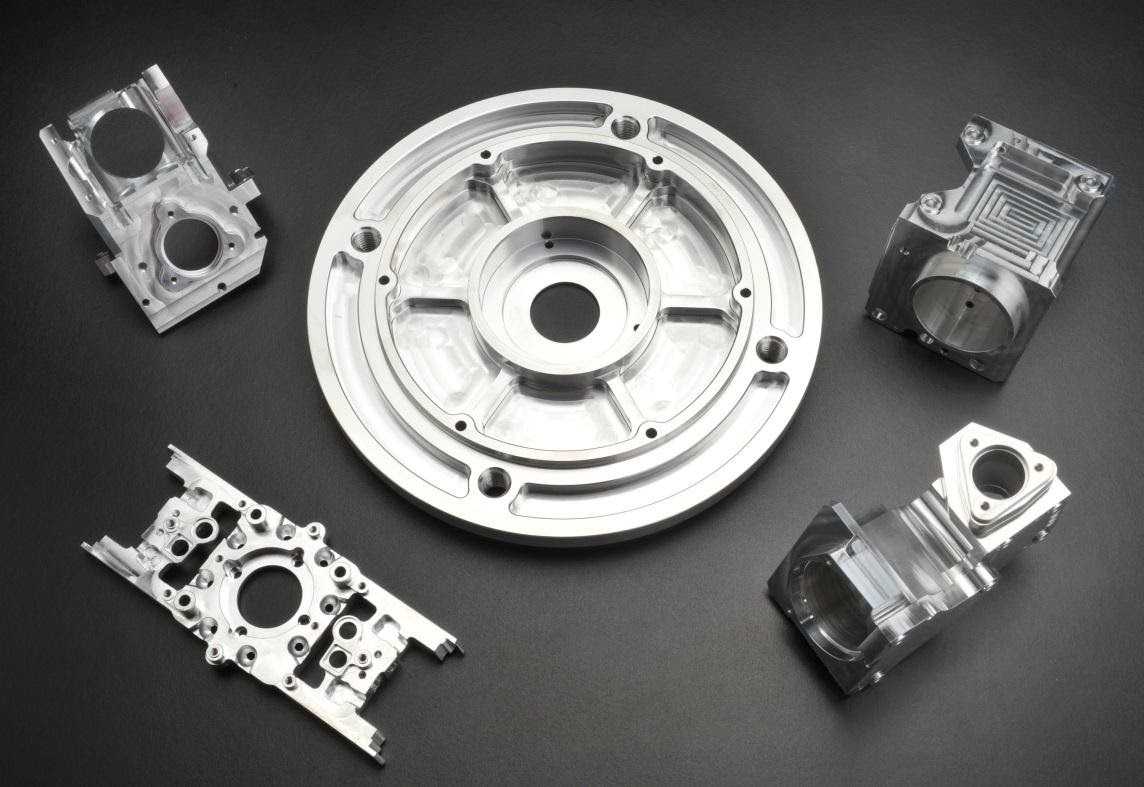
CNC aluminum parts
From military-grade aircraft to consumer electronics, CNC aluminum parts are used extensively across all industries. Since CNC machining offers a fast, automated solution for making custom aluminum parts, it allows companies to produce high-quality products quickly without compromising on accuracy.
However, to achieve desired results, it is important to choose the right alloy or grade of aluminum. Every aluminum grade has different physical characteristics, so you need to be aware of all the commonly-used aluminum alloys before deciding to pick one that best suits the part you want to produce.
Why Manufacturers Prefer Aluminum Parts
Aluminum is tough and yet extremely lightweight, which makes it perfect for consumer products. Aluminum alloys offer great machinability and corrosion resistance. They can also provide aesthetic appeal to a product.
You can find machined aluminum parts in cell phones, automobiles, windows, frames, kitchen utensils, and almost any other device or tool you can imagine. Manufacturers love aluminum because it offers a great deal of hardness and strength while also being quite workable.
When it comes to machining aluminum parts, you need to determine the right material to ensure optimum speed, accuracy, and production rate. The aluminum alloy you select depends on how you intend to machine it.

CNC aluminum parts
Do Manufacturers Use Pure Aluminum Parts?
Although aluminum alloys are more commonly used for machining aluminum parts, pure aluminum has some amazing properties if you intend to harness them properly. It is a great conductor of electricity after silver and copper and can be used for cables and wires.
As compared to iron and copper, pure aluminum ranks lower in density. This gives it a well-balanced ratio of strength and weight. It can be used to machine lightweight and strong housings for consumer electronics. It is also used to produce packaging materials for the food and beverage industries.
But, pure aluminum does not perform well in high alkali conditions or in liquids with high salt content. This probably can be somewhat tackled using a few types of aluminum alloys, which is why most manufacturers prefer aluminum alloy grades over pure aluminum.
So, let’s check out the various kinds of aluminum alloys available for CNC machining.
Types of Aluminum Alloys Used in CNC Machining
The aluminum alloy family is quite broad and offers numerous options that come with their own sets of pros and cons. Here are a few types of alloys used for machining aluminum parts.
- Cast Aluminum Alloy:This alloy is used in most CNC machining and dye casting processes because it’s very workable and machinable. It is high in strength and low in density, making it one of the most common choices in manufacturing high-performance complex aluminum parts. It is also used to make enclosures for sensitive instruments, components for liquid-cooled engines, pistons, crankcases, etc.
- Hard Aluminum: Mostly used in industries related to aerospace applications, hard aluminum offers much more mechanical strength as compared to other alloys. However, it is prone to corrosion and does not perform well in high-alkali environments. It is still a good alloy for making structural components.
- Anti-Rust Aluminum: As the name suggests, this aluminum alloy is rust-resistant. It is used to create durable structural components for fuel tanks, ducts, buildings, etc.
- Super-Hard Aluminum: Super-hard aluminum is the strongest alloy in the aluminum family. As it also consists of zinc, it provides extreme, military-grade strength.
These are some of the most common alloys used to create aluminum parts. They are further categorized into numerical grades that can be a little confusing if you’re not experienced with the process.

CNC aluminum parts
Common Aluminum Grades Used for CNC Machining
Aluminum can be mixed with other metals to create alloys as it is a soft metal. Every alloy differs in physical characteristics and servers a unique purpose. This is why different industries use different series of aluminum alloy grades for producing custom aluminum parts.
The grades range from Series 1xxx to 7xxx.
Series 1
The Series 1 range of aluminum alloys is made up of 99% pure aluminum, iron, and silicon. This makes the 1xxx series highly ductile for applications in the chemical and electrical industries. These alloys are highly workable and offer low mechanical properties along with high corrosion resistance. They are excellent electrical and thermal conductors and are used to make heat sinks, bus bars, etc.
Series 2
Mostly used in the aerospace industry to make lightweight aluminum parts, the 2xxx series of aluminum alloys use copper as the primary alloying metal. These copper alloys offer great machinability and can be more workable than mild steel when heat-treated. Although this grade of aluminum is high in strength, it is weak in areas like weldability and corrosion resistance.
Series 3
Series 3xxx aluminum alloys are made with manganese and showcase superior formability. These are usually cost-effective alloys used for general purposes as they offer moderate strength and decent workability.
Series 4
The 4000 series of aluminum alloys are popular in architectural applications. The primary alloying element here is silicon, which offers a very low melting point without causing brittleness. They are used in welding wires because of this reason. Dark grey color can be achieved on these alloys by apply anodic oxide finishes.
Series 5
Aluminum alloys in the 5000 series use manganese and magnesium as the primary alloying elements. This leads to amazing formability and high tensile strength along with excellent corrosion resistance. 5xxx series aluminum grade is used to create custom aluminum parts for bridges, marine equipment, and transportation applications.
Series 6
With magnesium and silicon in the mix, series 6xxx aluminum is one of the most versatile aluminum alloys available for CNC machining. It offers medium strength but good corrosion resistance and formability. It is used for manufacturing aluminum parts like plates, extrusions, sheets, pipings, etc. apart from other applications in architecture, electrical devices, and consumer goods.
Series 7
The 7xxx aluminum grade is famous for its strength as it contains chromium, magnesium, copper, and zinc. Although they offer average machinability, they are extremely durable and used to create solid molds. Popular in the smartphone industry, 7000 series of aluminum alloys are also used for applications in the defense, aviation, automotive, and marine industries.

CNC aluminum parts
How to Choose the Right Aluminum Grade for Your Application?
All the aluminum grades mentioned above cater to specific industries. It shouldn’t be difficult for manufacturers to identify which aluminum alloy is best for their manufacturing purposes.
The following factors should be considered when picking an aluminum grade for machining aluminum parts:
- Machinability
- Workability or Formability
- Strength
- Corrosion Resistance
- Weldability
- Heat Treating
- Electrical and Thermal Conductivity
- Common end-use applications
Final Words
While metals like steel, stainless steel, and titanium are also excellent machining materials, aluminum offers far more versatile options. This is why almost every industry uses aluminum parts to create high-quality products using CNC machining.





